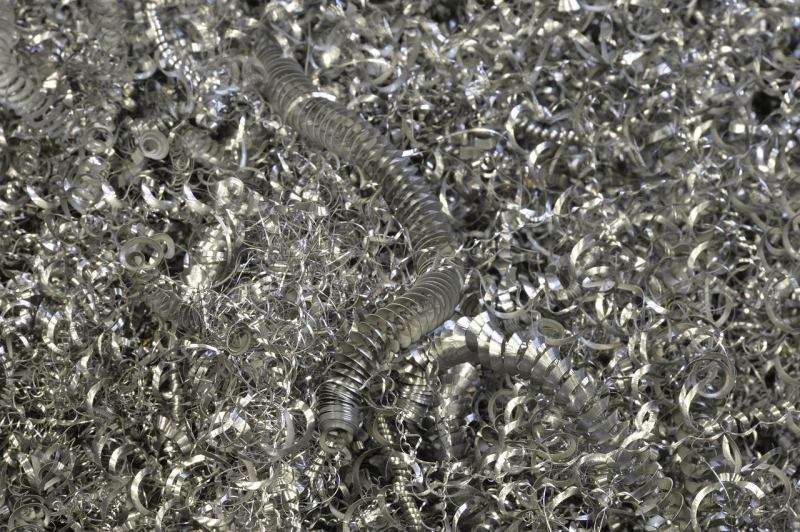

AUG 24, 2022
Metal parts often come in different shapes and sizes. Have you ever seen how long it can take to drill a piece of metal? If not, then you should try it. It's very tedious and often frustrating when the bit keeps breaking. It's worth the effort, though, as turning out great products comes with a ton of patience. The downside is that metal shavings tend to fly everywhere, doing some messy projects. The good news is that there are many safe disposal practices for metal shavings and turnings to avoid losing precious materials. RCM Recycling can help with scrap metal recycling needs for your turnings and shavings.
Metal shavings are created by many different types of equipment, including boring machines and lathes. The shavings produced by boring machines are often very small but are still considered dangerous to handle. When these small metal shavings get into the air, they can be inhaled by workers and cause serious health problems. Some common health problems related to inhaling dust include silicosis, asbestosis, and pneumoconiosis. Because of these risks, many companies have developed policies that require machinists to wear masks while they work so they don’t breathe in any dust or other contaminants that could cause damage to their lungs.
Metal shavings come in two forms: small pieces of material cut off of larger pieces of scrap metal and the remnants left after a completed machining process. Both types of metal shavings are typically found at industrial facilities where large machines used in manufacturing processes produce them as a byproduct. For example, turning lathes create metal shavings as they shape raw stock into finished products, while milling machines produce shavings when they cut grooves in parts using rotating cutting tools like end mills or flat lapping wheels. Drilling machines also produce metal shavings when they bore holes into various materials using drills and end mills with cutting teeth on their tips. Milling machines can also generate chips when they cut threads into parts during threading operations.
Metal shavings and turnings can be generated by any machine shop or manufacturing facility using metalworking equipment. However, machinists with experience in these areas are more likely to have access to machinery that creates more shavings than others. Also, the type of work they do can affect how much metal they create. For example, machinists who work in aerospace may generate less waste than those who work in other industries.
Machinists are common in these industries:
Metal shavings have a high risk of causing fires when improperly disposed of. Before disposing of metal shavings, you should ensure that they are not mixed with other materials that could cause a fire.
You should also avoid throwing metal shavings into landfills because they can contaminate the soil and groundwater around the site. The best way to dispose of metal shavings is by recycling them through a scrap metal recycler.
Metal shavings are a common occurrence in metalworking industries. However, proper disposal is essential for worker safety and environmental concerns. The most important aspect of disposing of metal shavings is to avoid the release of metal particles into the air. This can be accomplished by keeping metal particles damp in a closed container to prevent airflow and waiting until your metal particles become larger pieces that no longer create a combustible risk. If you have questions about how to store these shavings and turnings safely, contact RCM Recycling. Our scrap metal company has a great deal of experience.
Many companies offer free pickup services for scrap metal recycling centers, such as RCM Recycling. These services usually operate on a first-come, first-served basis, so it is important to contact them ahead of time to ensure timely service. RCM Recycling accepts all types of metals, including aluminum cans, copper wire, and even old vehicle parts!